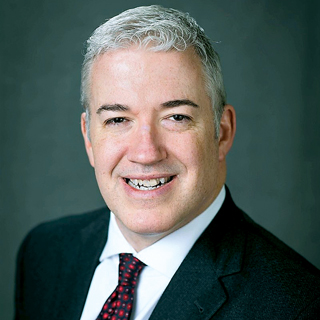
New Hampshire Health Care Association
Former House Speaker Paul Ryan once admitted he had been “dreaming” of cutting Medicaid since his college kegger days.
But one person’s dream can be another’s nightmare. That’s now the case for Medicaid advocates in Tennessee. There Republican Gov. Bill Lee is seeking radical block grant authority from the federal government in which the state would be incentivized to underfund Medicaid, splitting the “savings” with the federal government.
The draft submission from TennCare to the Centers for Medicare & Medicaid Services sanctimoniously asserts that “[t]he traditional model of Medicaid financing is an outdated model of fundamentally misaligned incentives. In the current framework, states that spend more money receive additional federal dollars, while states that strive to control costs and reduce spending receive reductions in federal funding.”
This homage to fiscal responsibility might impress were not Tennessee already blessed with one of the highest federal participation rates in its Medicaid program. The feds pick up almost two-thirds of all Medicaid costs there, as opposed to the dollar-for-dollar match New Hampshire and other states at the bottom receive. It’s pretty easy to denigrate “spending more money” when you’re not cutting the checks.
Here in New Hampshire, we’re one of 10 “donor states” paying more in federal taxes than we get back, so that a Bill Lee can crow about his fiscal conservatism. Tennessee nets $3,591 per resident in federal tax revenue. So much for the TennCare submission’s boast of “rigorous fiscal stewardship.”
Beyond its disingenuousness, the Tennessee proposal charts a dangerous path. Although providers would complain that CMS is too often akin to an absentee landlord in policing the protections it should enforce for beneficiaries, the TennCare submission actually asserts those protections are “[e]xamples of unnecessary federal requirements,” citing federal oversight of managed care contractors in Medicaid. Actually, it’s quite clear that, if anything, federal oversight of Medicaid managed care is much too laissez-faire. One can find widespread evidence of that fact, whether in the “Pain & Profit” series in the Dallas Morning News, in Government Accountability Office reports, or in academic literature.
And how would Tennessee “save” the money it wants to split with the federal government? Would it accelerate the “purging” – discovered by the Tennessean – of over 128,000 children from health care coverage? The failure to expand Medicaid has already led to an epidemic of hospital closures, particularly in rural areas. Could that crisis actually get worse? Would there be cuts to nursing home care, as the executive director of the Council on Aging of Middle Tennessee publicly warned?
In what could be viewed as a harbinger of what’s to come, the input in Tennessee of those actually informed about health care has been treated as irrelevant by ideologues. In March, the Tennessean reported that “[o]ne day after 30 organizations signed onto a letter expressing opposition to a GOP-led proposal to pursue Medicaid funding through a block grant, a House finance committee quickly approved the measure,” without discussion or questions.
CMS must not allow a vital safety net program with over a half-century-old history to be turned into a piggy bank for states.
Brendan Williams is the president/CEO of the New Hampshire Health Care Association.




